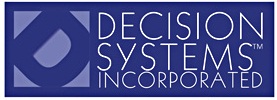Analytics – Like a Mosquito in a Nudist Colony
Analytics are like a mosquito in a nudist colony. Why? Because there are so many opportunities! There is a problem, however, that not everyone thinks or behaves like a mosquito. They do not always see opportunities – the opportunities to apply analytics.
I routinely see opportunities for analysis in my daily life. Perhaps I was born with DNA to constantly observe and collect data and evaluate the information for better outcomes. For example, which retail store check-out line should I enter? The answer: first look at the number of items in the shopping carts of those already in line and not only the length of the line.
Of course, that example is a straightforward application of applying analytical investigation. A more complex opportunity is to answer this question. What angle and speed of an airline jet’s take-off ascent and landing descent will optimize its fuel usage? KLM Airlines has developed a sophisticated model to answer this question. It is based on data from thousands of past flights. The results save KLM remarkably significant fuel costs and substantial total expenses since fuel is a substantial portion of an airline’s expense structure.
Analytics’ perils from insect repellant
There is a problem, however, that not everyone thinks or behaves like a mosquito. They do not always see opportunities – the opportunities to apply analytics.
Perhaps I stretch this mosquito analogy too far when I presume that many opportunities may have insect repellent applied to them. For example, at a five star hotel, is staffing an extra customer representative at the check-out counter for the morning rush worth it? It might not appear cost-justified, but it may be a very valuable extra expense if you irritate an important and delayed social media influencer who will complain on Twitter or TripAdvisor.com. How would you know? It is an opportunity for an analyst’s experiment or survey. The insect repellant analogy implies that an analyst may not “sense” an opportunity.
In the book Thinking, Fast and Slow by Dan Kahneman, recipient of the Nobel Prize in Economic Sciences for his seminal work in psychology that challenged the rational model of judgment and decision making, Kahneman explains the two systems that drive the way we think. System 1 is fast, intuitive, and emotional; System 2 is slower, more deliberative, and more logical. System 1 is largely unconscious and it makes snap judgments based upon our memory of similar events and our emotions. System 2 is painfully slow, and is the process by which we consciously check facts and think carefully and rationally.
A problem Kahneman points out is that System 2 thinking (slow) is easily distracted and hard to engage and that System 1 thinking (fast) is wrong as often as it is right. System 1 thinking is easily swayed by our emotions. As an example, he describes an observation that people buy more cans of soup in a grocery store when there is a sign on the display that says “Limit 12 per customer.” People miss the opportunity to analyze.
Life and an organization as a game
People enjoy playing games. The electronic game industry has exploded. Angry birds anyone? The gaming industry (think Las Vegas) is enormous. In a sense one’s own life is a game with aspects that are both serious (e.g., personal tragedies and losses) and fun (e.g., friendships).
Organizations are also playing a game by attempting to out-smart and out-maneuver whatever competitor, stakeholder, or obstacle it needs to defeat, satisfy, or overcome respectively. To win games, one needs to be smart, quick, and agile. Like the mosquito, one needs to detect opportunities and apply superior analytics. Then, check mate.
